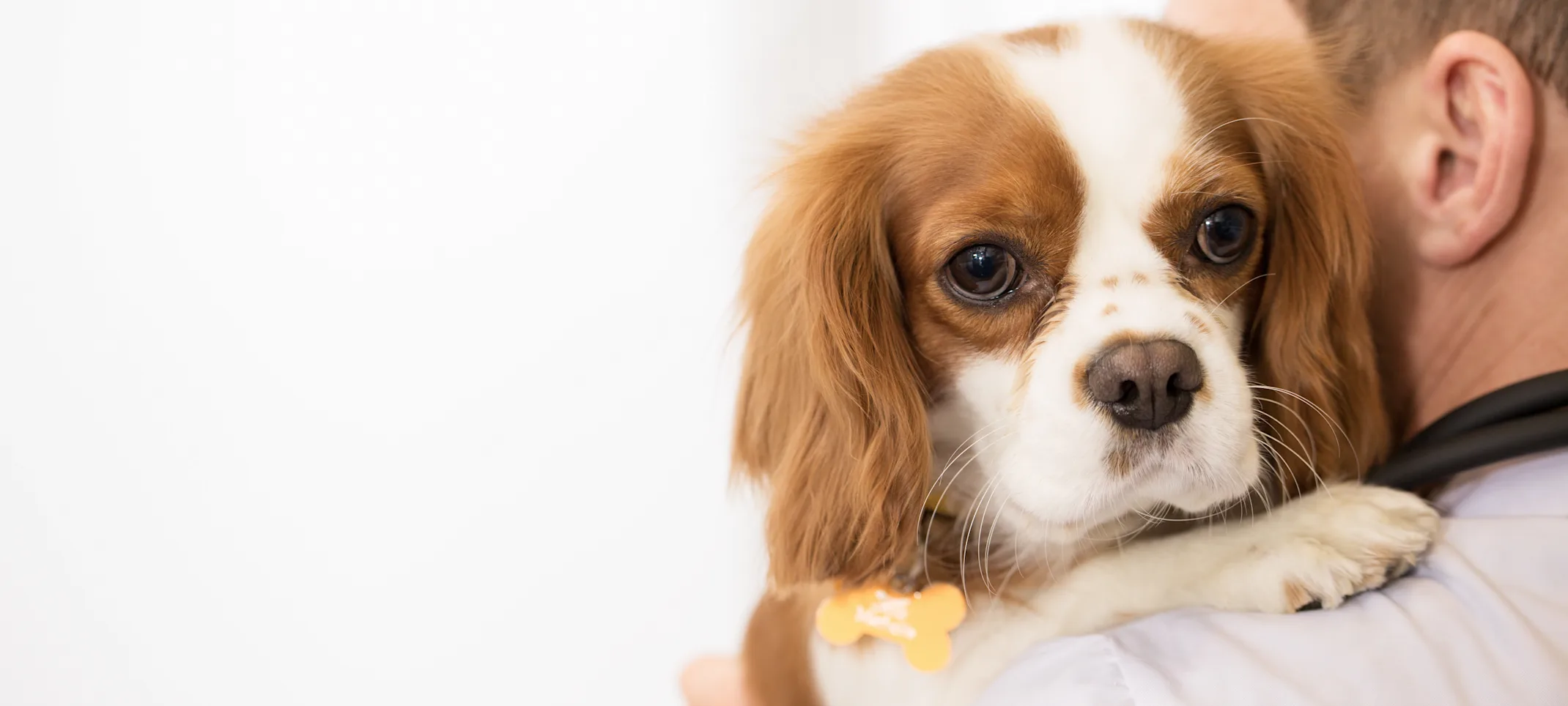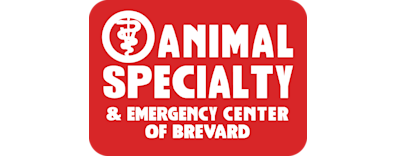Animal Specialty & Emergency Center of Brevard
Parvovirus
The canine parvovirus (CPV) infection is a highly contagious viral illness that affects dogs and is often simply called “Parvo”.

The majority of cases are seen in puppies between six weeks and six months old. The frequency of canine parvovirus infections has been reduced radically by early vaccination in young puppies.
Parvo is a serious viral infection that can lead to death, even when aggressively treated by a veterinarian. The earlier you notice your pet becoming ill and have them cared for by a veterinarian, the better off your dog will be. Animals infected with Parvo need 24 hour support. DIY home treatment is not a viable option.
Symptoms and Types of Canine Parvovirus:
The major symptoms related to canine parvovirus include:
severe, unusually foul smelling, bloody diarrhea
lethargy
anorexia
fever
vomiting and
weight loss
red mouth and eye tissues
fast heartbeat
tender abdomen
low body temperature (hypothermia)
The intestinal form of Parvo affects the body’s ability to absorb nutrients, and an affected animal will quickly become dehydrated and weak from lack of protein and fluid absorption. Sometimes, Parvo also affects cardiac (heart) function. This is particularly dangerous and the pet must be placed on heart-regulating drugs to prevent cardiac arrest leading to death.
What Causes Canine Parvovirus?
There are a variety of risk factors that can increase a dog’s susceptibility to the disease, but mainly, the virus is transmitted either by direct contact with an infected dog, or indirectly, by the fecal-oral route. Heavy concentrations of the virus are found in an infected dog’s waste, so when a healthy dog sniffs an infected dog’s stool, it can contract the disease. The virus can also be brought into a dog’s surroundings by shoes that have come into contact with infected feces. There is evidence that the virus can live in soil for up to a year. It is resistant to most cleaning products and weather changes. If you suspect that you have come into contact with infected feces at all, you should wash the affected area with household bleach, the only disinfectant known to kill the virus.
Improper vaccination protocol and vaccination failure can lead to a CPV infection. Breeding kennels and dog shelters that hold a large number of unvaccinated puppies are particularly dangerous places. Diseases or drug therapies that curb the normal response of the immune system may also increase the chances of infection.
How Is Parvo Diagnosed?
You will need to give a thorough history of your pet’s health, recent activities and onset of symptoms. If you can bring in a sample of your dog’s feces or vomit, the veterinarian should be able to use these samples for microscopic detection of the virus.
There is now a Snap ELISA (enzyme-linked immunosorbent assay) test that can confirm the presence of Parvovirus in a matter of just a few minutes. If the dog is in the very early stages of Parvo, they may need to be tested more than once before the enzymes appear to get a definitive positive result.
The veterinarian will perform a physical examination and will likely need to perform biochemical tests, urine analysis, abdominal radiographs and/or an abdominal ultrasound. A chemical blood profile and a complete blood cell count may also be performed. Low white blood cell levels are indicative of Canine Parvovirus infection, especially in association with bloody stools. Biochemical and urine analysis may reveal elevated liver enzymes, lymphopenia, and electrolyte imbalances. Abdominal radiograph imaging may show intestinal obstruction, while an abdominal ultrasound may reveal enlarged lymph nodes in the groin, or throughout the body, and fluid-filled intestinal segments. These test all help the veterinarian tailor your dog’s therapy and monitor for other additional or subsequent illnesses or conditions.
What Is the Treatment for Parvo?
Since the disease is a viral infection, there is no cure for it. Treatment is focused on curing the symptoms and preventing secondary bacterial infections, if at all possible in a hospital environment. Intensive therapy and system support are the key to recovery. Intravenous fluid and nutrition therapy is crucial in maintaining a dog’s normal body fluid after severe diarrhea and dehydration. Protein and electrolyte levels will be monitored and regulated as necessary. Medications that may be used in the treatment include drugs to curb vomiting (antiemetics), H2 Blockers (such as Tagamet & Zantac) to reduce nausea, antibiotics, and anthelmintics to fight parasites.
Death may sometimes result from severe dehydration, a severe secondary bacterial infection, bacterial toxins in the blood, or a severe intestinal hemorrhage. Prognosis is lower for puppies, since they have a less developed immune system. It is not out of the ordinary for a puppy that is infected with CPV to suffer sudden shock and pass away.
Caring for Your Pet After Parvo
Even after your dog has recovered from a CPV infection, it will still have a weakened immune system, and will be susceptible to other illnesses. Talk to your veterinarian about ways you can boost your dog’s immune system, and otherwise protect your dog from situations that may make him or her sick. A diet that is easy on your dog’s stomach is best while he or she is going through recovery.
Your dog will also continue to be a contagion risk to other dogs for at least two months after the initial recovery. You will need to isolate your dog from other dogs for a period of time, and you may want to tell neighbors who have dogs that they should have their own pets tested. Wash all of the objects your dog uses (e.g., dishes, crate, kennel, toys) with a bleach solution. Recovery comes with long-term protection against the parvovirus, but it is not a guarantee that your pet will never be infected with the virus again.
How Do You Prevent a Dog from Contracting Parvo?
The best prevention you can take against CPV infection is to follow the correct protocol for vaccination. Young puppies should be vaccinated at six, nine, and twelve weeks, and should not be socialized with outside dogs until at least two weeks after their last vaccinations. High-risk breeds may require a longer initial vaccination period.
The veterinary team at Animal Specialty and Emergency Center of Brevard is very experienced in dealing with Canine Parvovirus. We can provide your dog with all of the resources he or she needs to fight back against this life-threatening virus.
If you believe your dog may be suffering from Canine Parvovirus, please seek veterinary attention as soon as possible and do not allow your dog to be around or share living quarters with any other dog.
Our veterinary team is available 24 hours a day, 7 days a week. Call us at (321) 725-5365.
